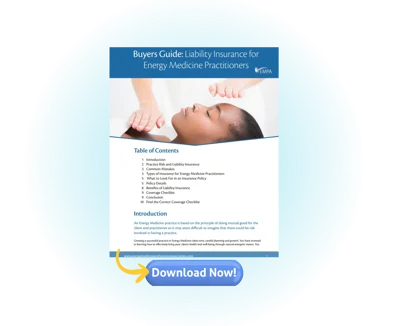Understanding Coverage: Claims Made and Occurrence Insurance
August 6th, 2025
2 min read
By Anya Charles

Insurance is about trust.
That’s why it’s worth pausing on a pair of terms you might have skimmed past: claims made and occurrence. They sound technical, but the difference between them can shape how protected you truly are if something unexpected ever arises.
It’s not only what you’re covered for. It’s also when.
We’ll walk through the meaning behind each term and help you understand how these two approaches work, so you can choose the one that feels aligned with your practice.
 What Do These Terms Mean?
What Do These Terms Mean?
These two terms describe the different ways liability insurance is triggered; specifically, when you’re protected if a claim is filed.
- Claims-made policies cover claims made and reported during the policy period.
- Occurrence policies cover incidents that occur during the policy period, regardless of when the claim is reported.
This distinction has significant implications for policyholders, particularly regarding reporting timelines and potential gaps in coverage.
Let’s say your client slipped and fell in February. In March, you dropped your insurance. In April, they made a claim for what happened in February. With occurrence type insurance, because your policy was live at the time of the incident, you’re covered.
But if you had a claims made policy, and you didn’t keep it active, you wouldn’t be protected, even though you were insured when the incident happened.
That’s the heart of it. Claims made on when a claim is filed. Occurrence depends on when the event happened.
We're here to make liability insurance simple and accessible. Check out our free Buyer's Guide for more information.
 What Else to Consider
What Else to Consider
It’s easy to assume all liability policies are more or less the same, but the details can shape your peace of mind down the line. Before you decide between claims made and occurrence coverage, here are a few things worth thinking through:
- How long do you plan to stay in practice? If you're just getting started and plan to build a long-term career, occurrence coverage can provide lasting protection, even if you take time off, move, or retire. Claims made policies may require extra steps (and extra cost) to maintain coverage if your plans change.
- Do you want to keep things simple? Claims made policies often require you to keep detailed records of when each policy started and ended, especially if you ever switch providers. With occurrence, once your coverage ends, you typically don’t have to look back or track past policy timelines.
- What’s your comfort level with long term risk? Some claims don’t show up right away. (Depending upon the state, a client may have anywhere from one to six years to file a claim!) If that idea makes you uneasy, it may be worth looking at how your policy would respond if something comes up well after a session takes place.
- Have you reviewed coverage limits and exclusions? Consider how much coverage is offered, what's included, and what’s not. Make sure your modality is listed and your practice fits within the scope of coverage.
This isn't about choosing the "right" answer, so don’t worry! It's about making a choice that works for you based on how you work and how you want your protection to follow you.
Most energy and healing practitioners tend to find that occurrence coverage is the best fit for their work—which is why EMPA, a professional association with liability insurance and membership perks, offers occurrence-based coverage.
 What’s Next: Know What You’re Choosing
What’s Next: Know What You’re Choosing
It’s not always obvious what you’re agreeing to when you choose a policy, but a little clarity upfront can save a lot of confusion later.
If you’re still sorting through the details, EMPA’s Buyer’s Guide is a great next step. It walks you through what to look for, what questions to ask, and how to match coverage to the way you actually work.
Start with the Buyer’s Guide, and feel good knowing your next decision is an informed one.
Disclaimer: This article is for educational purposes only and does not provide legal, financial, or medical advice. The examples are general, and coverage may vary by policy. Always refer to your insurance provider or policy language for specific details, as the policy terms take precedence. For legal concerns related to your practice, consult an attorney.
Anya is a writer with a passion for inspiring those around her. She is the Content Manager at EMPA, where she works closely with subject matter experts to turn their insight into articles that inform, support, and empower the energy healing community. With over a decade of experience in the wellness world, she enjoys making complex ideas feel accessible and meaningful. Whether she’s writing new pieces or polishing others, Anya’s focus is on helping others grow their clarity and professionalism. She also serves as Editor in Chief of Energy Magazine, a unique publication dedicated to the world of energy medicine. Outside the office, you’ll find Anya reading, planning travel adventures, or negotiating peace treaties with her houseplants.
Topics:

.png?width=1326&height=405&name=EMPALogo_final_white-01%20(1).png)


























